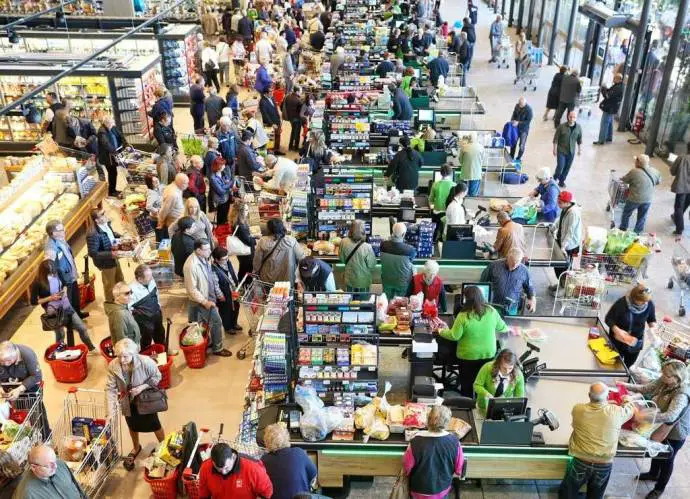The agreement, signed by the Retail Workers' Trade Union, the Gorenjska Trade Union Council, the Retail Chamber, the Employers' Association and the Chamber of Commerce and Industry, will be in effect until the end of 2022.
Ladi Rožič, the head of the Retail Workers' Union, told the press after the deal was signed that those in the lowest five pay brackets would see their pay increase by 5% on 1 January and another 2% in July.
A salesperson in the fourth bracket, who now gets EUR 624.10 net, will make EUR 655.31 as of January and EUR 667.79 as of July, Rožič illustrated.
Those in the sixth and seventh pay brackets will see their salaries go up by 10% in January. This means that the lowest salary in the sixth bracket would go from the current EUR 814.97 to EUR 896.47 in January.
The reason for the difference in increase is that the lowest salaries had already seen an increase following the last pay talks, according to Rožič.
In total, 108,000 people work in the retail sector, among them 30,000 as sales personnel. The collective bargaining agreement will apply to some 87,600 employees.
As of 1 September, they will no longer have to work on holidays, as stores will remain closed, except for exceptions stipulated by law, such as pharmacies and petrol stations.
Until now, employees could work up to 15 Sundays and five holidays a year. Under the new agreement, they will work up to 20 Sundays a year but not more than two a month. The agreement however increases the pay for Sunday work.
Workers will be eligible to double their gross hourly pay on Sundays. The bonus will not be lower than EUR 6.05 an hour, compared to the EUR 5.4 gross that is in place now.
"With the pay rise, the Sunday hourly pay will amount to about ten euro," said Rožič.
Moreover, in case that a worker will have to work more than two Sundays a month, their hourly pay will go up 500%.
Work load has been capped to 56 hours a week. Any excess hours accumulated by the end of the year will be paid out in January with a 60% increase.
A holiday bonus will be paid out in January amounting to the minimum pay (EUR 638 net). If the employer opts to provide a part of the bonus in non-monetary form, the value of the bonus increases to EUR 970, of which 55% must be provided in funds.
Moreover, 45% of the bonus must be paid out in a way that allows the worker to purchase a broad range of products, the agreement stipulates.






